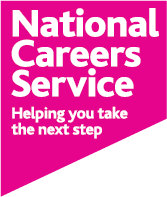Work experience is an essential part of any career path. It helps you develop the skills and knowledge you need to succeed in your chosen field. However, simply completing an internship or job is not enough. To truly get the most out of your work experience, you need to take an active approach and make the most of the opportunities presented to you. Here are some tips for getting the most out of your work experience:
1. Set clear goals
Before starting your work experience, set clear goals and objectives for what you want to achieve. This will help you stay focused and motivated, and give you a sense of direction. Your goals could include learning a new skill, building your network, or gaining experience in a specific area of your field. Whatever your goals are, write them down and refer to them regularly to keep yourself on track.
2. Be proactive
Don’t wait for your supervisor to assign you tasks – be proactive and seek out opportunities to learn and contribute. Ask questions, offer to help with projects, and take on additional responsibilities where appropriate. This will show your supervisor that you are enthusiastic and eager to learn.
3. Build relationships
Take the time to build relationships with your colleagues and supervisor. Be friendly, professional, and respectful, and make an effort to get to know your colleagues on a personal level. This will help you feel more comfortable in your workplace and may even lead to job opportunities in the future.
4. Seek feedback
Ask for feedback from your supervisor and colleagues on a regular basis. This will help you identify areas where you can improve and provide you with valuable insights on your strengths and weaknesses. Use this feedback to adjust your approach and improve your performance.
5. Keep a record
Keep a record of your work experience, including the tasks you have completed, the skills you have developed, and the achievements you have made. This will help you demonstrate your experience to future employers and may even come in handy when writing your resume or cover letter.
Take time to reflect on your work experience regularly. Think about what you have learned, what you enjoyed, and what you didn’t like. Use this information to guide your career path and make informed decisions about your future.
6. Network
Take advantage of your work experience placement to build your network. Attend company events and networking opportunities, and connect with your colleagues and supervisors on social media. This will help you build a strong professional network and may lead to future job opportunities.
7. Learn from your mistakes
Don’t be afraid to make mistakes – they are a natural part of the learning process. Instead, use your mistakes as an opportunity to learn and improve. Reflect on what went wrong, what you could have done differently, and how you can avoid making the same mistake in the future.
8. Take initiative
If you see an opportunity to improve a process or suggest a new idea, take initiative and share your thoughts with your supervisor. This will demonstrate your creativity and problem-solving skills, and may even lead to positive changes within the company.
9. Stay Positive and Professional
Stay positive and professional throughout your work experience. This means being on time, dressing appropriately, and maintaining a positive attitude. Remember that your work experience is an opportunity to demonstrate your skills and build your reputation in your field. Maintain a positive attitude, even during difficult situations, and be open to feedback and constructive criticism.
10. Follow up
After your work experience placement is complete, be sure to follow up with your supervisor and colleagues. Thank them for the opportunity, and ask if they would be willing to serve as a reference in the future. This will help you maintain your professional relationships and stay on their radar for future job opportunities.
In conclusion, work experience can be a valuable opportunity to gain practical skills, build your network, and explore career options. By setting clear goals, being proactive, building relationships, seeking feedback, keeping a record, networking, learning from your mistakes, taking initiative, staying positive, and following up, you can get the most out of your work experience and position yourself for future career success.
Need Support?
The National Careers Service provides free, up to date, impartial careers information, advice and guidance. We can help you to make decisions on learning, training and work at all stages in your career.
To speak to an adviser, call 0800 100 900 (Monday-Friday, 8am-8pm & Saturday 10am-5pm) or visit nationalcareers.service.gov.uk.


